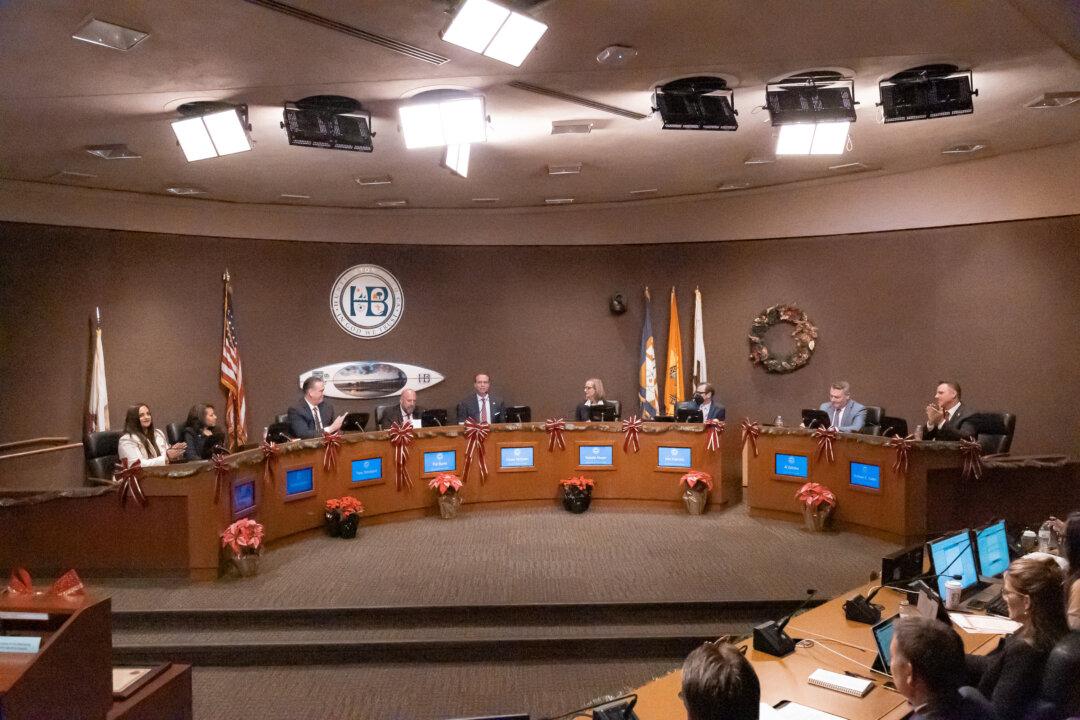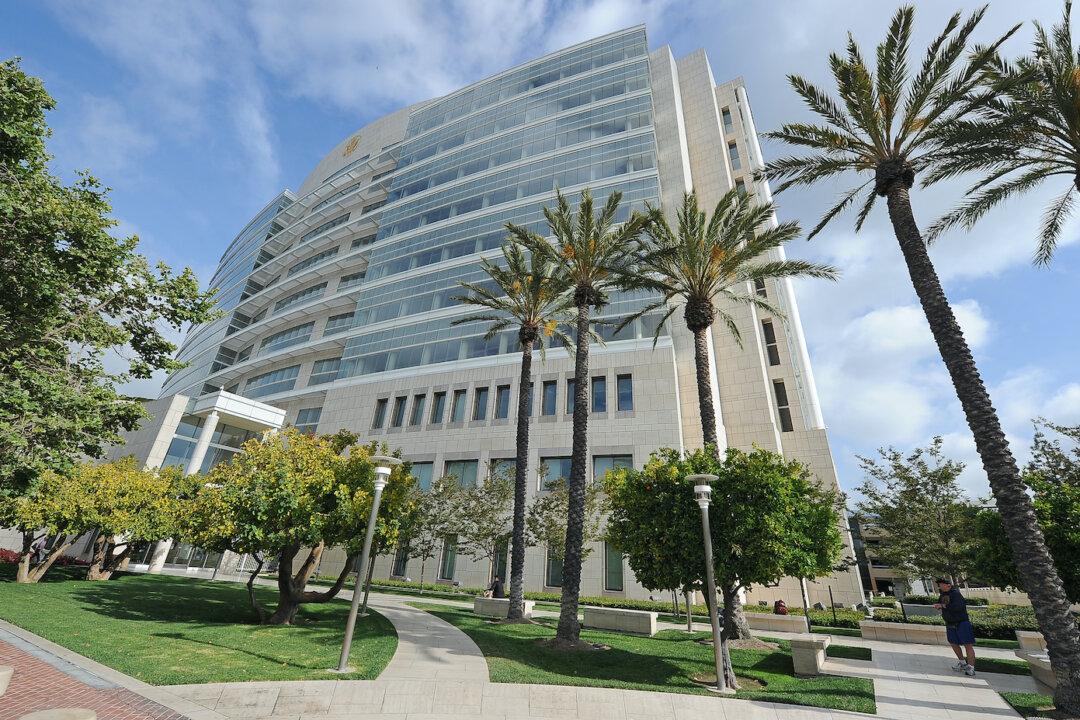The newly elected conservative majority on the Huntington Beach, California, City Council—Mayor Tony Strickland, Mayor Pro Tem Gracey Van Der Mark, and councilmen Casey McKeon and Pat Burns—hit the ground running during their first meeting on Dec. 20.
In a nearly four-hour meeting, the seven-member council granted a pay raise for its city attorney, approved a study into possibly withdrawing from the Orange County Power Authority, and ended its own COVID-19 state of emergency, which means all councilors will now be required to attend meetings in person.




